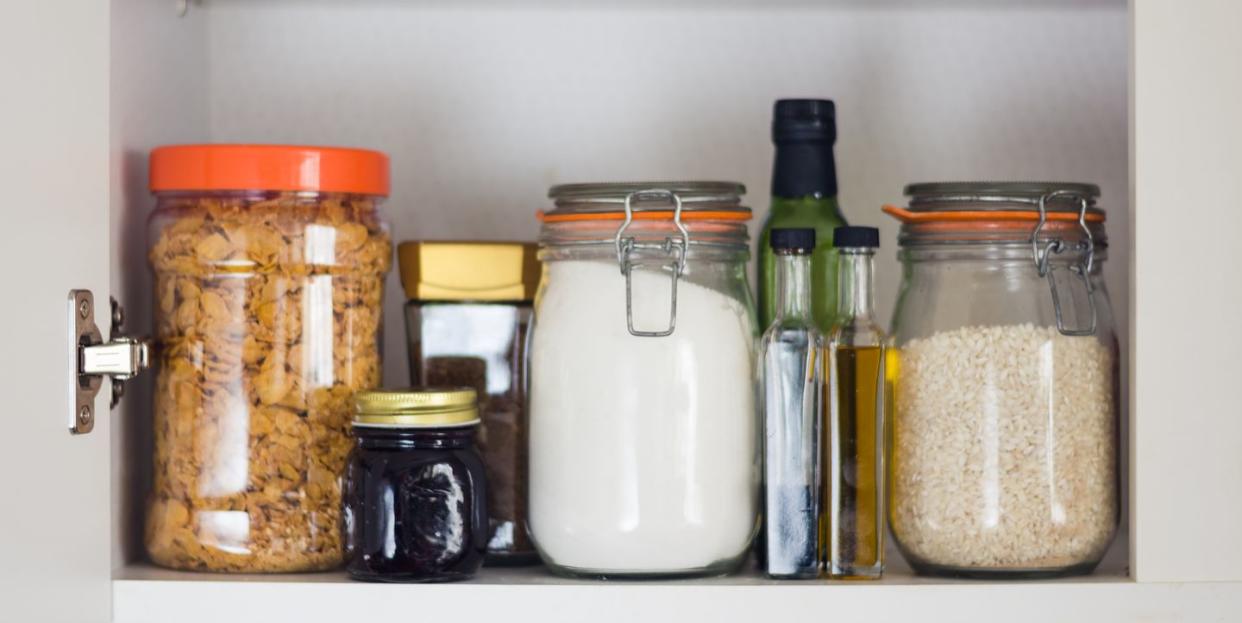What You Should Actually Be Stocking Up On To Be Prepared For A Coronavirus Outbreak

As COVID-19, or the coronavirus, affects more people around the world, it can be difficult to know what to do to help you and your family to prepare for the event of a potential quarantine or outbreak near you. Buying the right food, medicine, and other supplies can make it easier on you in the long run and can help to cut down on the number of trips you have to make to the store later.
First and foremost, it's important to stay calm. Buying up anything and everything you see in the stores is tempting, but in the end, it likely won't help you much and can put others in a bind.
Make a list of what you and your family actually use day-to-day and what you may need in the days and weeks to come. The U.S. Department of Homeland Security is recommending about two weeks of food and supplies. Figure out what that means for you and your family specifically.
Video: Royal Children’s School Reportedly Testing for Coronavirus
This means buying things you know your family will eat regardless if you'll be staying at home. So while you want to buy things that are non-perishable (more on that in a second!), make sure it's not something you and your family have never tried before that then, therefore, might go to waste. Don't buy just for the sake of buying.
Now for the more specific recommendations:
Pantry items
Canned and packaged goods are all good options for creating a base for meals. These items won't go bad, even if you don't end up using them within the next month or so, and are often easy to prepare.
Think specifically of things like cereal, crackers, pasta, canned soup, and rice. These are all also neutral items that can come in handy should someone in your house become ill with coronavirus or any other illness.
The Department of Homeland Security recommends stocking up on bottled water as well. Other drinks that can come in handy are sports drinks and shelf-stable juices that can help to replenish electrolytes should someone become ill.
Some more examples of useful foods below:
Popcorn
Beef jerky
Beans and legumes (dried or canned)
Grains (farro, couscous, rice, etc.)
Canned fruits or veggies
Jarred tomato sauce
Nut butters
Trail mix
Oatmeal
Shelf-stable milks
Jelly
Pet food
Frozen Food
Frozen food is a great way to make sure you're still getting plenty of nutrients during a potential long stay at home. Stocking up on things like frozen fruits and veggies allows you to whip dishes up quickly and can stay good for years.
You can also use your freezer to extend the shelf life of fresh items like butter, certain cheeses, bread, and more. If you're someone with a tendency of cooking more than you need, you can also think about freezing things like soups, broths, casseroles and more, but just be sure they don't take up too much room in your freezer.
Some more examples of foods you can freeze are below:
Burgers
Frozen grains
Potatoes
Frozen fish
Meatballs
Smoothies
Dough
Home supplies
Again, think about what your family uses day-to-day and week-to-week, but don't hoard these things. Make sure you have a reasonable amount of toilet paper and paper towels, as well as laundry and cleaning supplies, including disinfectant.
The CDC recommends "for disinfection, diluted household bleach solutions, alcohol solutions with at least 70 percent alcohol, and most common EPA-registered household disinfectants should be effective."
In addition, make sure you have toiletries like toothpaste, body wash, shampoo, shaving supplies, hand sanitizer, hand soap, and skin-care. It's also smart to have an extra toothbrush or two on hand in case someone becomes ill.
Medication
There is no specific medication approved to treat coronavirus specifically, however, many over-the-counter medications used to treat colds and flus. Anti-inflammatory medications like Advil can be important to have on-hand. Give your cabinet a once-over and make sure everything is in date and buy more where you need.
In certain cases, you may be able to get larger amounts at one time of certain prescriptions, so talk with your pharmacist and/or insurance company to discuss your options. You should also consider certain over-the-counter medicines you take often (like antacids), and make sure you have those on hand. You should aim to have a 14-day supply of any medication you need, but 30 days is ideal.
You Might Also Like

